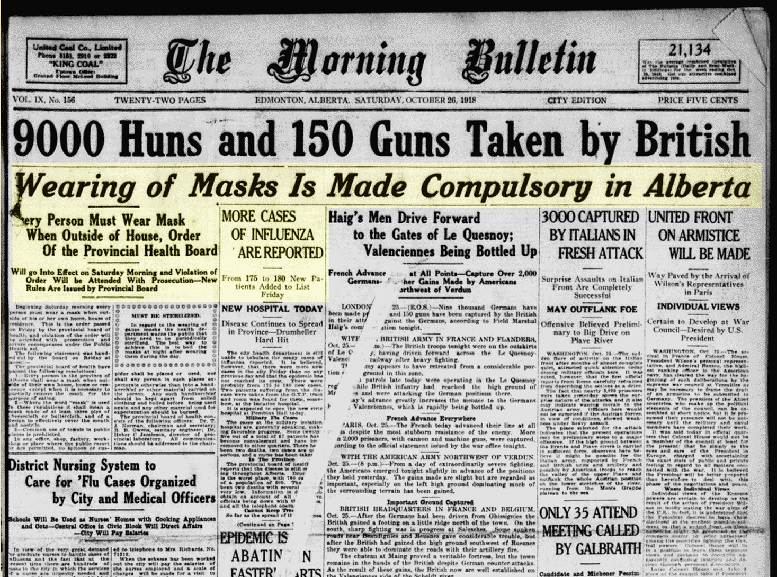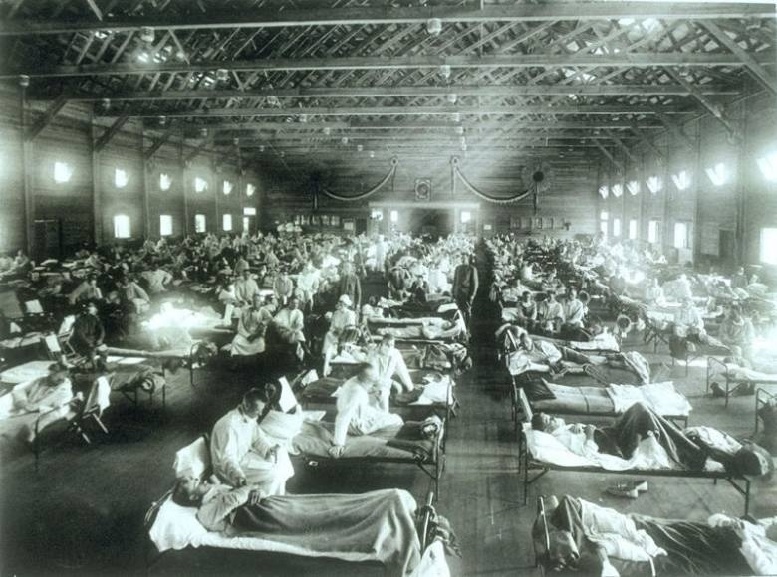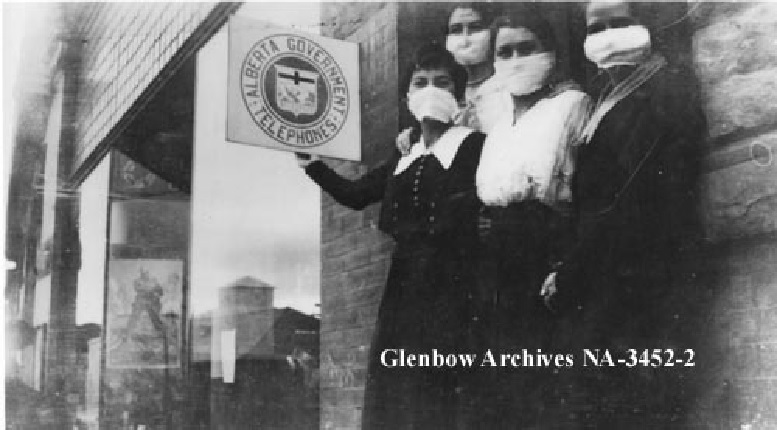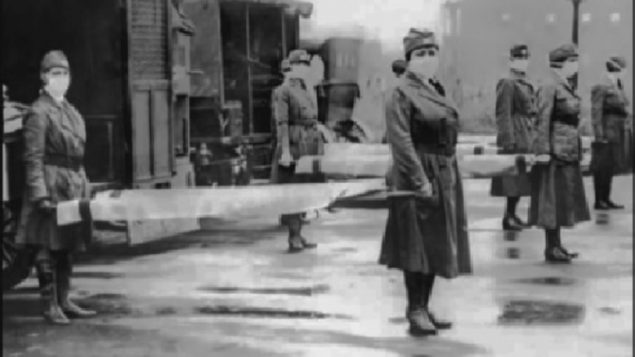This year marks the 100th anniversary of the end of World War I, and ceremonies in countries around the world continue to commemorate that historic date. But it was also 100 years ago that a disease swept across the world taking with it far more lives than the cruel war.
The so-called Spanish flu began to make its deadly way around the world in January 1918.
Millions dead
Almost no part of the world was spared during the major outbreaks in 1918-19, but the strain continued into the early 1920’s. Bythe time the outbreak faded estimates of dead range from 20 to 100 million people dead, some 50,000 in Canada.

Newspaper headlines in Edmonton in October 1918 announce new rules for mandatory wearing of face masks. Doctors had little knowledge and few resources to treat victims. Photo : University of Alberta- Edmonton Bulletin
Canada to mark anniversary
This week, the Canadian government announced funds for two organisations in order to mark the anniversary. The government will award almost $400,000 to Testaments.ca for an innovative digital platform to inform students of the terrible tragedy and its effects on Canada and the world, and over $450,000 for Sound Venture Productions to create a documentary on the devastation in the Canadian population including aboriginal communities, some of which were particularly hard hit due to limited exposure to previous flu strains.
One of the direct results of Canada’s efforts to deal with the flu was the formation of the federal Department of Health in 1919.
Origins
With the world at war, the major countries wanted to limit news coverage of the devastation they were dealing with so as not to give a psychological advantage to the enemy, and not weaken morale of their armies, or the public at home.
Neutral Spain however had no restricitions on its coverage of the outbreak leading people to believe falsely that the disease had begun in Spain.
The actual origin has been difficult to pinpoint but some indications are the flu strain developed in late 1917, possibly first in Asia spreading to the U.S, or in the crowded military camps in the U.S. and then to a major military staging area in France from where it may have spread throughout the various armies. Wherever it actually originated, it is thought that the vast movement of soldiers and sailors contributed to its worldwide spread.

US soldiers from Ft Riley, treated at a makeshift hospital at Camp Fulton, Kansas. Some believe the Spanish flu may have had its origins here. Photo: US Army- wikicommons
The flu came in waves, initially late 1917 and early 1918 with a relativel low death rate, then the second far more deadly wave spread in the fall of 1918, with subsequent wave following as it began to fade
What is unusual is that normally flu has more serious affects on the young and elderly whose immune systems may not be strong, in this case it was the opposite. The flu seemed to carry away adults in the middle. Scientists figure the particular strain caused an over-reaction in immune systems in healthy people causing damage to the lungs. While many survived, some died within hours of developing symptoms, others seemed to be recovering only to relapse and die later. Across Canada, and around the world, many families were left without a breadwinner as the father died, and indeed many children were left withour parents at all.

Alberta phone operators wearing masks 1918: Photo Glenbow Archives
The flu came in waves, initially late 1917 and early 1918 with a relatively low death rate, then the second far more deadly wave spread in the fall of 1918, with subsequent waves as it subsided greatly in 1919, but with cases continuing in following years until the mid 1920’s
The 1918 Spanish Flu remains one of the worst pandemics in history.







For reasons beyond our control, and for an undetermined period of time, our comment section is now closed. However, our social networks remain open to your contributions.